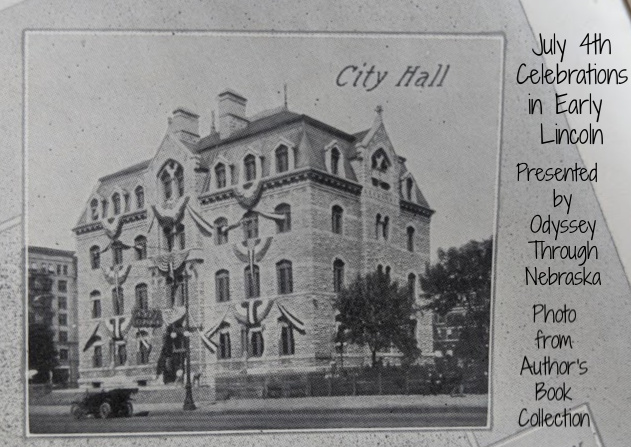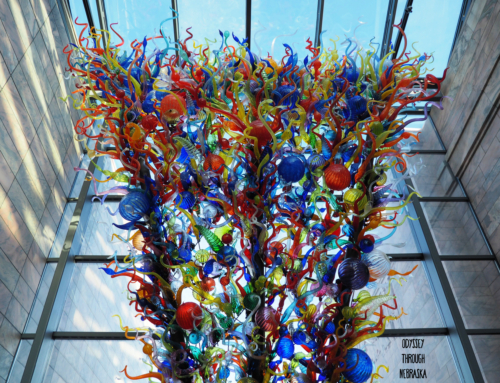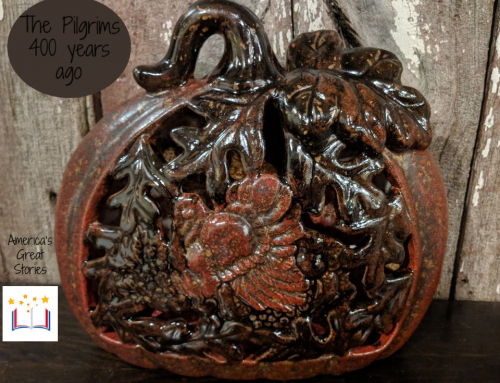Because I was going for a historic overview of the city for my A History Lover’s Guide to Lincoln, I did not research the early Lincoln 4th of July celebrations. Thanks to newspapers.com, I was able to discover at least some of the details of how the capital city celebrated Independence Day during its first decade. I was greatly amused!
No fireworks allowed?
The first mention of 4th of July celebrations actually was an announcement that nothing explosive was allowed. Because I truly cannot word the information any better, here is the direct clip from the Nebraska State Journal July 1st, 1870. Please note the result of disregarding the law- possibly a bit more extreme than what happens to those who shoot off illegal fireworks today.
The Marshall desires to notify us, all boys little and big that the ordinances against fireworks, crackers & e. will be rigidly enforced on the 4th. The extreme dryness of the weather makes this an imperative duty. All parties annoyed or endangered by the firing of crackers or other combustibles will please report the same, and the offenders will be promptly arrested and fined.
Starting out Lincoln’s 4th of July 1873
I did find the information from an early Seward celebration from 1871. But the first mention of a public gathering in Lincoln was from 1873. I planned to try to find more mentions of celebrations, but the details from this event were so fascinating, that I knew this was what I needed to share. I am quoting portions directly from the July 3rd, 1873 Nebraska State Journal.
The arrangements for a grand celebration of the 4th of July, are now very nearly completed. The day will be ushered in with thirty-seven guns at sunrise. At half past ten there will be a grand display of the fire department, and half an hour later the procession will be formed on Market Space.
Then the article goes on to mention the “order of procession,” so that viewers would know the parade order. After the citizens went by, everyone was to “march to the ‘disputed eighty,’ where Engign’s large tent will be erected.” Back then, everyone knew the location of the “disputed eighty.” I discovered that early Lincolnites could not determined who owned this particular 80 acres outside of town. Poor people built shanties. The plot was used for short horse races. AND evidently a great place for4th of July celebrations since the land was not being used for anything else. Back to the celebration. In the tent, a chaplain said a prayer, music would be performed along with oration and a poetry reading.
July 4th 1873 Afternoon Exercises
Similar activities happened during the “afternoon exercises.” The Declaration of Independence was to be read by Corporal Chimborazo Madegascar Barkus. And at 3:20 pm, there was to be “General mourning over the separation of the ‘Cloven-feet’ and other ‘Nith-ro-glicerine” performances. Clovenfoot was mentioned earlier in the program as well. Guess you had to be there? One other important note pertained to the humorous portions of the afternoon entertainment. I have no idea how they carried out this quest.
The arrangements for the funny part of the programme in the afternoon, are well carried out, and a genuine burlesque celebration, full of fun, and free from vulgarity will be presented.
A baseball game was played between “the ‘Mutuals’ of this city, and the Ashland club. This was possible because the trains provided half price fares. I wonder how long it took to ride the train from Ashland in 1873? Can any train enthusiasts provide me with that answer?
The July 4th Jubilee
The evening exercises started with a grand concert.
“The arrangements for the Jubilee are very extensive. About 100 voices will take part in the affair. Miss Fannie Kellogg, the sweet singer, of Council Bluffs, will be the Prima Donna of the occasion, and will be assisted by the leading singers of the city.”
At the time of print, they had not determined the final location.
“It has not been fully arranged whether the Jubliee will take place in the Academy of Music or the Pavilion. The former is preferred if the firemen will permit the singers to occupy it, until the hours to commence dancing, arrives. If such arrangements can be made, this portion of the evening exercises will take place in the hall. In that case, the cannon accompaniments will have to be omitted. The anvils will be used in either case. The Jubilee will, undoubtedly, be a very pleasant affair.”
The fact that they decided to only use the cannons outdoors was a wise choice.
The July 4th 1873 Finale
Next the fireworks were held on the disputed 80 perhaps due to its location. But their evening did not end with explosions. Instead …
“The Firemen’s ball will take place at the Academy of Music. This is the first regular ball held in this hall, and will give lovers of dancing a pleasant opportunity of enjoying their favorite recreation.”
But I do believe that the best part of the article is the ending. Evidently people already liked to make a ruckus back in 1873.
“This is to be just what it was planned to be, a regular old-fashioned 4th of July celebration, in which everybody can take part if they desire. If they do not want to take part, they are at perfect liberty to sit on the fences and bite their finger ends while the rest enjoy themselves.”
By the way, the feature image is of the original Lincoln post office. Back in 1873, this would have been the building’s use. This picture was probably taken in the early 1900s. At this point, a new post office was a part of the next door federal building. One of Lincoln’s finest original structures became City Hall.
Happy Independence Day everyone!






Leave A Comment